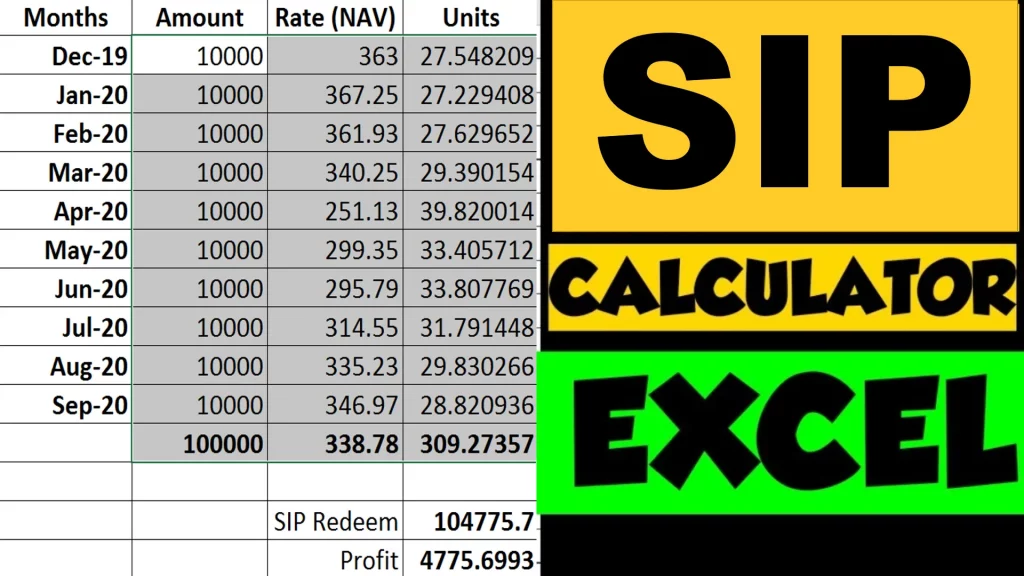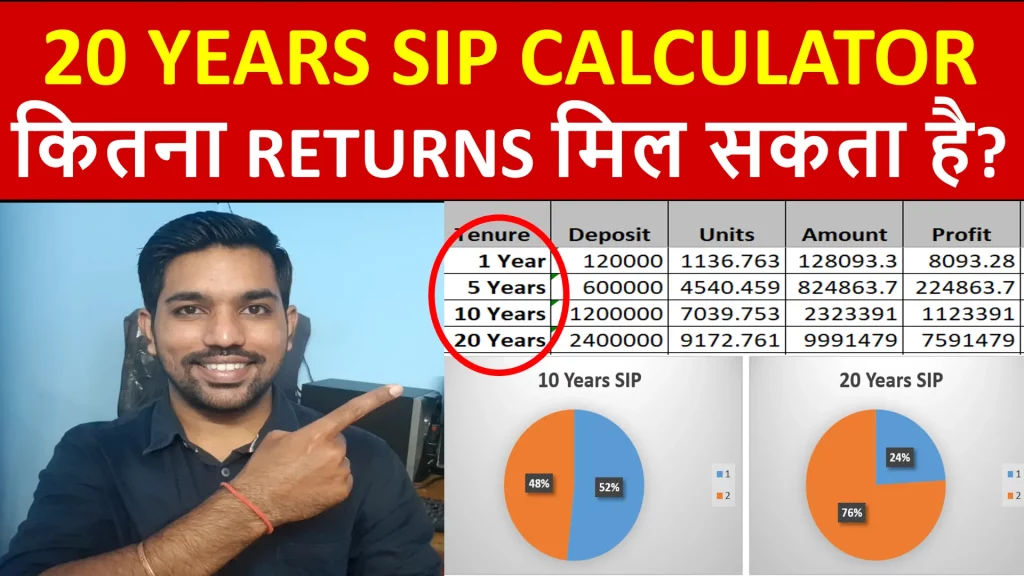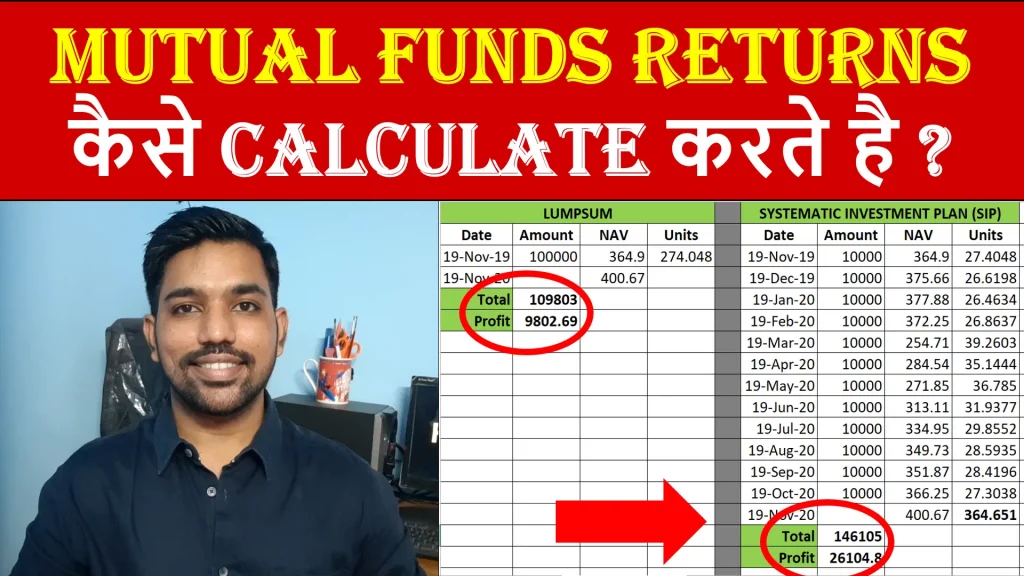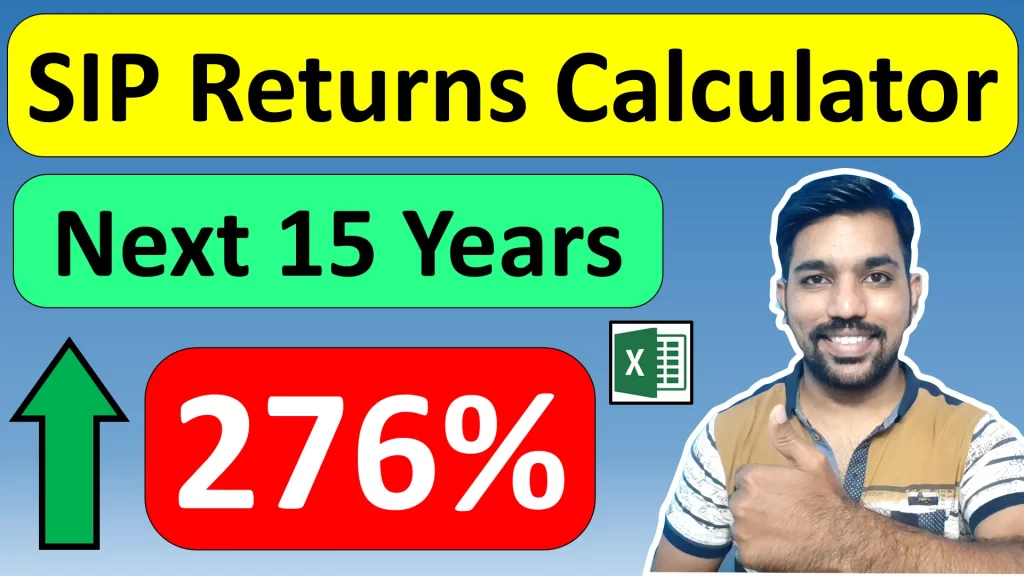ELSS Mutual Funds full form is Equity Linked Saving Scheme, which are the type of equity mutual funds that helps you to save income tax under old tax regime. You can claim maximum of Rs. 1.5 lakh under Section 80C to save income tax. ELSS Mutual Funds are the only mutual funds that help you to save income tax. They come with a lock in period of 3 years which is the minimum compared to other tax saving instruments. At least 65% of total assets are allocated to equities and equity related instruments in this ELSS Mutual Fund, and the rest can be allocated to debt instruments.
Let us understand about ELSS Mutual Funds in detail.
What is ELSS Mutual Funds?
- ELSS full form is Equity Linked Mutual Funds
- They have a lock in period of 3 years, which means once you invest in this mutual fund, you have to stay invested for at least 3 years
- ELSS Mutual Funds help you to save income tax under Section 80C
- Maximum of Rs. 1.5 lakh can be claimed with Section 80C under old tax regime
- Please note that new tax regime does not allow this deduction to be claimed
- ELSS Mutual Funds are the only mutual funds that provide you tax benefits, and the returns are similar to equity mutual funds
- Since these funds invest in equities, they are more risky compared to Debt Mutual Funds, but historically we have seen that they have provided great returns in the past
- At least 65% of total assets are allocated to equities and equity related instruments. Remaining assets can be allocated to debt or money market instrument, and that is why, returns and risks involved depends on these allocations of total assets
How ELSS Mutual Funds works?
Working of ELSS Mutual Funds is quite simple:
- Every ELSS Mutual Fund is allocated a fund manager
- The fund manager is responsible to select the equities or stocks of the companies to invest in
- At least 65% of the total assets accumulated must be invested in equities, based on the equity mutual fund rule
- So the fund manager tries to maximize your returns on investments
- It is important to note that you need to remain invested for at least 3 years, due to the lock in period of ELSS Mutual Funds
- If you make SIP investments, every SIP transaction will be locked in for 3 years and will be open for redemption after completing 3 years based on the date of SIP amount deduction
- The lump sum investment on a specific date can be redeemed after 3 years of it’s completion
- You can save income tax by claiming maximum of Rs. 1.5 lakh as deduction, against the investments you make in ELSS funds
- These investments can either be in the form of SIP or lump sum investment
- The returns expected can be anywhere between 10% to 15% annually over long term, which is more compared to other Tax Saving instruments like PPF (Public Provident Fund), 5 year Fixed Deposits, NSC (National Saving Certificates), etc.
- The returns you get from the ELSS Mutual Funds will be taxable based on the mutual funds taxation
Features of ELSS Mutual Funds
- ELSS full form is Equity Linked Saving Scheme
- These mutual funds have lock in period of 3 years, which means your investments will be locked for at least 3 years after the date of transaction, irrespective whether it is SIP or lump sum investments
- These mutual funds help you to save income tax under Section 80C with old tax regime
- You can claim up to Rs. 1.5 lakh in financial year as deductions to save income tax. You can also invest more in these funds in a financial year but only Rs. 1.5 lakh will be considered for tax deduction purpose with old tax regime
- The profits made in these funds will be taxable, and since it will be LTCG (Long term capital gains), 10% of tax need to be paid on the profits made above Rs. 1 lakh in a financial year
- The returns generated in these funds are generally higher like 10% to 15% or more based on asset allocation, but they are also risky compared to other tax saving instruments
- You should stay invested for at least 5 years to 7 years based on your financial goals and to get better returns
ELSS Mutual Funds Benefits
Below are some of the Benefits of investing in ELSS Mutual Funds:
- Tax Saving Funds: ELSS Mutual Funds are the only type of mutual funds that provide tax benefits under Section 80C. No other mutual fund provides any tax benefits
- Better Returns: Since you stay invested for 3 years or more, you get better returns compared to other tax saving instruments like PPF (Public Provident Fund), NSC (National Saving Certificate), Fixed Deposits, etc.
- Long Term Goals: You can achieve your long term financial goals along with income tax saving when you invest for 5 years of more with the help of ELSS Mutual Funds
- Flexibility: You have the option to start SIP (Systematic Investment Plan) in ELSS> Best strategy will be to start SIP in the month of April up to the month of March of next year and save income tax with these deposits or investments via SIP
How to save Income Tax ELSS Mutual Funds
You can save income tax by investing in ELSS Mutual Funds under Section 80C. Maximum of Rs. 1.5 lakh can be claimed using this option with old tax regime.
You cannot claim this deduction under new tax regime, due to their reduced tax slab rates.
It is important to note that only those investments made in a specific financial year can be claimed in that financial year. The investments made in other years cannot be claimed in this year while claiming deduction under Section 80C.
Please note that when you redeem the ELSS Mutual Funds units, the profits made by you will be taxable as per LTCG (Long term capital gains) taxation rules. 10% of tax need to be paid on profits made above Rs. 1 lakh in a financial year.
Comparison of ELSS with other Tax saving Instruments
Let us now compare ELSS Mutual Funds with other tax saving instruments like PPF, fixed deposits, NSC, etc.
| Investment | Returns | Lock in Period | Tax on Returns |
|---|---|---|---|
| ELSS Mutual Funds | 10% to 15% | 3 Years | Partially Taxable |
| Public Provident Fund (PPF) | 7% to 8% | 15 Years | No |
| National Saving Certificate (NSC) | 7% to 8% | 5 Years | Yes |
| National Pension Scheme (NPS) | 8% to 12% | Retirement | Partially Taxable |
| 5 Year Fixed Deposits | 6% to 7% | 5 Years | Yes |
As seen above, ELSS Mutual Funds has the lowest lock in period and provide better returns as well compared to other tax saving options. But these are also risky compared to other debt instruments mentioned above, so it is best to remain invested for 5 years or more to get good returns as stated above.
Best ELSS Mutual Funds
Le us now see some of the best ELSS Mutual Funds. It is important to note that you should do your own analysis while investing in ELSS funds
- Bank of India Tax Advantage Fund
- Quant Tax Plan
- SBI Long Term Equity Fund
- HDFC ELSS Tax Saver Fund
- Kotak ELSS Tax Saver Fund
While you are selecting any ELSS Mutual Fund for investing, invest in only one ELSS fund as having multiple ELSS funds might have overlapping allocations to equities which might not be of much use in terms of returns.
You should be analyzing the portfolio of the ELSS funds, past performance, expense ratio, minimum and maximum investments allowed, exit load and other similar factors. Please note that above list is not a recommendation and you should seek financial advisor before taking any financial decision.
Conclusion
So ELSS or Equity Linked Savings Scheme is a type of equity oriented mutual fund that helps you to save income tax. You can claim up to Rs. 1.5 lakh in a financial year under Section 80C with old tax regime. New tax regime does not allow deduction with ELSS Mutual Funds.
Also, ELSS funds come with a lock in period of 3 years, irrespective whether you have invested via SIP or lump sum investments. You can achieve dual benefits with ELSS funds including tax benefits and achieving long term financial goals of wealth accumulation.
Note that the returns you get from ELSS funds will be taxable based on LTCG rules – which means 10% tax need to be made on profits above Rs. 1 Lakh in a financial year.
Some more Reading:
Frequently Asked Questions
Is ELSS tax free after 3 years?
Investments made in ELSS or Equity Linked Saving Scheme can be claimed under Section 80C during which those transactions are made. These investments will be locked in for 3 years. You can continue investing after 3 years as well, to claim deductions in upcoming financial years, and the FY in which you invest will be considered for deduction claiming purpose. Where as the profits you make from these investments after 3 years will be taxable based on LTCG rules – 10% tax on profits above Rs. 1 lakh in financial year.
Which is better FD or ELSS?
Is PPF better than ELSS?
For you short term goals like 6 months to 3 years, fixed deposits are better since they can provide you fixed interest income. Where as if your goal is for 3 years or more, you can invest in ELSS for tax saving purpose and also get better returns over long term. It is advised to stay invested in ELSS for 5 years or more to get better returns, so it depends on your goals. For tax saving purpose only, ELSS would be better since fixed deposits will help to save income tax only with 5 years tenure, but if you invest same amount in ELSS, after 5 years you can get better returns, but there is risk associated with ELSS to some extent in this case well.
What are the disadvantages of ELSS?
Some of the disadvantage of ELSS include – lock in period of 3 years, risky compared to other tax saving instruments, during redemption your profits can go down in case of any market conditions like Covid 19 or other similar recession periods. That is why it is recommended to stay invested in ELSS for longer duration, and redeem mutual fund units only when you need them after 3 years lock in period, provided you are making profits on your investments.
Can I invest more than 1.5 lakh in ELSS?
Yes you can invest more than Rs. 1.5 lakh in ELSS in a financial year. Rs. 1.5 lakh in the maximum limit to claim deduction with Section 80C while saving income tax, and not the limit on your investment amounts. You can also start SIP in ELSS to systematically save income tax.
Save Home Loan Interest Amount!
Use Home Loan Excel Calculator that will help you to Save Interest Amount on Home Loan EMI.
Click below button to download Home Loan EMI and Prepayment Calculator in Excel:
Watch how Home Loan Calculator in Excel Works
Income Tax Calculator App – FinCalC
For Income Tax Calculation on your mobile device, you can Download my Android App “FinCalC” which I have developed for you to make your income tax calculation easy.
What you can do with this mobile App?
- Calculate Income Tax for new FY 2024-25 and previous FY 2023-24
- Enter estimated Investments to check income tax with Old and New Tax Regime
- Save income tax details and track regularly
- Know how much to invest more to save income tax
- More calculators including PPF, SIP returns, Savings account interest and lot more
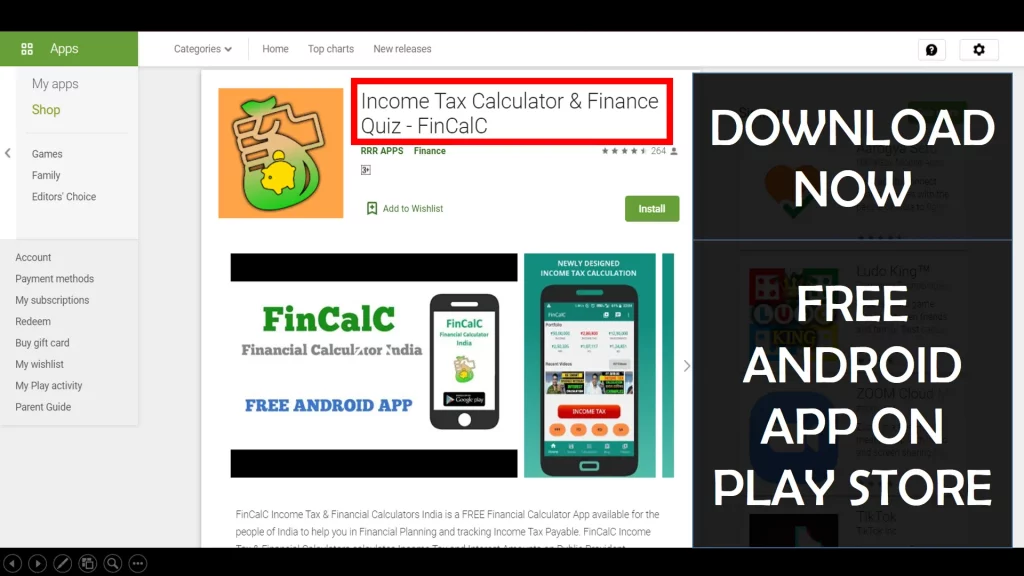
Use Popular Calculators:
- Income Tax Calculator
- Home Loan EMI Calculator
- SIP Calculator
- PPF Calculator
- HRA Calculator
- Step up SIP Calculator
- Savings Account Interest Calculator
- Lump sum Calculator
- FD Calculator
- RD Calculator
- Car Loan EMI Calculator
- Bike Loan EMI Calculator
- Sukanya Samriddhi Calculator
- Provident Fund Calculator
- Senior Citizen Savings Calculator
- NSC Calculator
- Monthly Income Scheme Calculator
- Mahila Samman Savings Calculator
- Systematic Withdrawal Calculator
- CAGR Calculator
I’d love to hear from you if you have any queries about Personal Finance and Money Management.
JOIN Telegram Group and stay updated with latest Personal Finance News and Topics.
Download our Free Android App – FinCalC to Calculate Income Tax and Interest on various small Saving Schemes in India including PPF, NSC, SIP and lot more.
Follow the Blog and Subscribe to YouTube Channel to stay updated about Personal Finance and Money Management topics.


